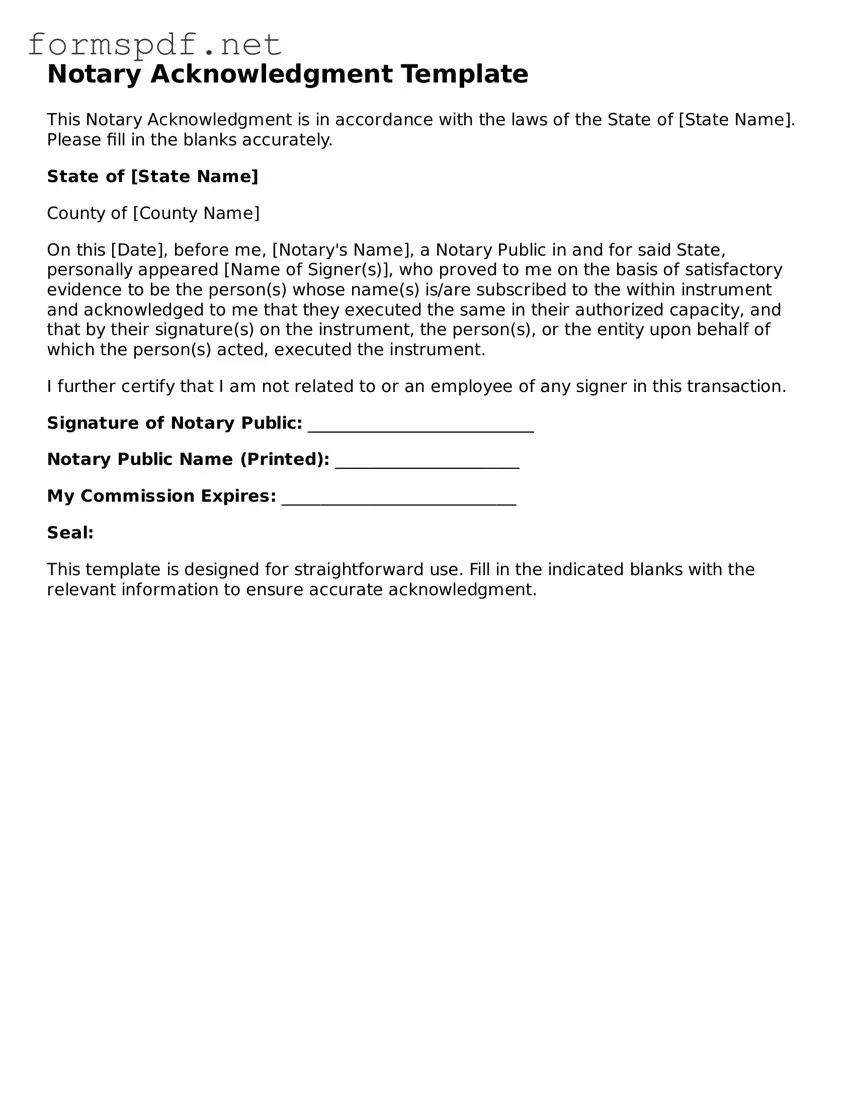Fillable Notary Acknowledgement Form
A Notary Acknowledgment form is a legal document that confirms a person’s identity and their willingness to sign a particular document. This form plays a crucial role in ensuring that signatures are authentic and that the signer understands the contents of the document. For those looking to complete this process, fill out the form by clicking the button below.
Launch Editor Now

Fillable Notary Acknowledgement Form
Launch Editor Now

Launch Editor Now
or
⇓ Notary Acknowledgement PDF
Don’t leave without finishing the form
Finish your Notary Acknowledgement online and download the final version.